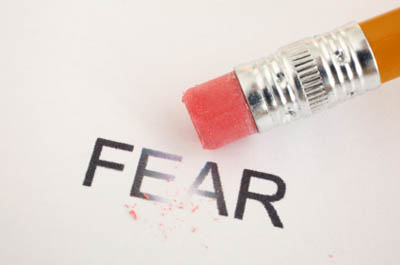How Meditation Cleanses the Mind of Fears & Phobias
How Meditation Cleanses The Mind Of Fears & Phobias

"Phobia" is one of those words that society likes to abuse. Whenever someone is afraid of something, we say they have a phobia. But this is rarely the case. Phobias are serious psychological disorders that have a negative effect on a person’s life, whereas basic fear and anxiety can be a healthy and rational response to imminent danger. An understanding of this difference is key to understanding how meditation benefits those who suffer from true phobias.
When the mind associates danger even when there is none, that's when fear becomes irrational, debilitating, and unhealthy. If a person was locked in the basement as a child, for example, they may have a fear of enclosed spaces (claustrophobia). Although their fear was healthy and rational at the time, as their body was pushing to fight or flee the dangerous situation, later on as an adult, when they panic at the sight of otherwise harmless enclosed spaces (i.e. elevator) — it becomes a true phobia.
Fear, The Brain, & Meditation
To the person experiencing it, this type of panic can feel uncontrollable. While thoughts and memories of the initial stimulus or event flood their mind, their heart begins to race, their breathing rate increases, and they may feel like they're hyperventilating. This fearful reaction comes from the amygdala, a warning system in the brain that initiates the "fight or flight" response.
Conversely, the brain's "observation deck" is the ventrolateral prefrontal cortex, which interprets emotions without getting wrapped up in them. For those who suffer from phobias, the relationship between the amygdala and the ventrolateral prefrontal cortex is where meditation’s power resides. By processing our everyday irrational fears through our "higher thinking" ventrolateral prefrontal cortex, meditation teaches our "caveman" amygdala to respond only as needed.
The Difference Between Being Afraid & Observing Afraid

If a claustrophobic person were to practice meditation regularly, should they find themselves in a "tight" situation on any given day, they would know to observe their emotional and physical state in the moment, such as "I notice that my palms are sweaty and I have feelings of fear," and then, in a very detached way, seeing those thoughts and feelings for what they are (i.e. just another "secretion" of the conscious mind), and not reacting in any way. It's the ability to observe the traffic of the mind, without getting involved, that makes meditation the best route to mind mastery.
The Fearless Present Moment
Meditation also trains the mind to live in the present. Because phobias stem from past events, and anxiety is often a response to a fear of the future, when you focus on the present and live in the now — the fear center amygdala has fewer reasons to activate. Additionally, when we use basic "present moment" mindfulness techniques to our advantage, such as observing the inward and outward flow of the breath, there is no room in our mind for racing thoughts and boiling sensations. And so, instead of our "fearful phobia thoughts" causing our muscles to tighten-up and our breath to shorten, they simply pass on through.
In the end, if you are looking to, once and for all, kick a particular fear or phobia to the curb, then meditation is your best bet.
-
Main
-
Mind & Brain ▼
-
Anxiety, Depression,
& More -
Intelligence, Memory,
& Learning -
Happiness, Flow,
& Positivity -
Success, Intuition,
Creativity, & Willpower -
Consciousness,
Deep Mind, & More
-
-
Health & Body ▼
-
Weight Loss
-
Longevity & Life
Extension -
Healing, Immunity,
Disease, & More -
Sleep & Insomnia
-
Stress, Pain,
Energy, & More
-
-
EquiSync®
Discover EquiSync®


Click the buttons to play or pause the audio.

Using safe and highly effective sound technology, all EquiSync programs are designed to carefully ease the listener's brainwaves into a state of deep meditation, opening the door to the ancient mind practice's limitless benefits much faster than the traditional route. You can learn more about how it works from the links below:
---
While we have outlined one basic philosophy / form of meditation in the links below, if you already have a proven meditation technique — then we encourage you to combine & enhance it with our audio technology. EquiSync uses sound to deepen the meditative state no matter your chosen technique.
How can meditation benefit your life? Our highly referenced, highly backlinked "benefit of meditation" articles are known for their in-depth research & inspirational tone. A few good reads are linked below:



